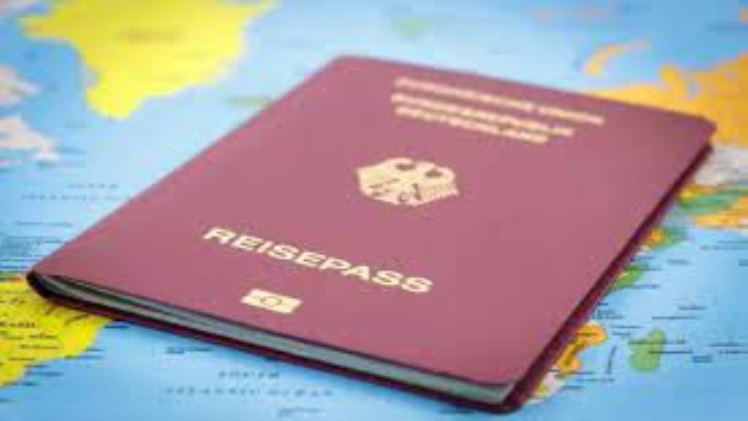Introduction
Traveling to foreign countries is an exciting and enriching experience. However, every traveler must be aware of the specific entry requirements set by each destination, one of which often includes passport validity. While many countries allow travelers to enter with passports that are valid for the duration of their stay, some nations have more stringent rules. One common requirement is that travelers’ passports must have at least three months of validity beyond their planned departure date from the country. In this article, we will explore which countries have this 3-month passport validity rule, why it is in place, and what travelers need to know to ensure a smooth journey.
The 3-Month Passport Validity Rule
The 3-month passport validity rule means that when traveling to certain countries, your passport should be valid for at least three months beyond your intended departure date. This rule is designed to ensure that travelers have enough time on their passport to cover unexpected delays, extensions of stay, or other unforeseen circumstances that may extend their time abroad. It provides an extra layer of security for both the traveler and the destination country.
Why Do Some Countries Require 3 Months of Passport Validity?
Countries that have the 3-month passport validity rule in place do so for various reasons, including:
Unforeseen Delays: Travel plans can change, and delays may occur for various reasons, such as medical emergencies, transportation issues, or bureaucratic delays. Requiring 3 months of passport validity ensures that travelers can adjust their plans if needed without running into passport expiration issues.
Legal Requirements: Some countries have laws that necessitate this minimum validity period to grant entry or a visa. It helps ensure that travelers won’t overstay their permitted time in the country.
Safety and Security: The 3-month validity rule contributes to national security by reducing the risk of travelers being stranded in a foreign country without a valid passport.
Consular Assistance: If you run into problems during your stay in a foreign country, having a passport with extended validity makes it easier for your country’s embassy or consulate to provide assistance.
Countries with 3-Month Passport Validity Requirements
The countries that enforce the 3-month passport validity rule may change, so it’s essential to check with the respective country’s embassy or consulate and the U.S. Department of State’s Travel Advisory page for the latest information. As of my last knowledge update in September 2021, some countries that require 3 months of passport validity include:
Schengen Area Countries: Many European countries in the Schengen Area, such as France, Italy, Germany, and Spain, require 3 months of passport validity beyond your intended departure date.
United Kingdom: The UK enforces the 3-month passport validity rule.
Thailand: Travelers to Thailand are required to have at least 3 months of passport validity upon entry.
Indonesia: Indonesia demands 6 months of passport validity, but travelers should have at least 3 months beyond their intended departure date.
Vietnam: Vietnam requires travelers to have at least 6 months of passport validity, but they may enter with a minimum of 3 months beyond their planned departure.
China: Travelers to China should have at least 6 months of passport validity, with 3 months beyond their intended departure date.
Philippines: The Philippines enforces a 6-month passport validity rule but allows entry with a minimum of 3 months validity for some nationalities.
Singapore: Singapore requires 6 months of passport validity, but 3 months beyond the intended departure date is sufficient for most travelers.
Malaysia: Travelers to Malaysia must have 6 months of passport validity, but a minimum of 3 months beyond their intended departure date is accepted for certain nationalities.
Canada: While not officially a 3-month rule, Canada suggests that travelers’ passports be valid for the duration of their stay.
Please note that passport validity requirements may vary based on the traveler’s nationality. It’s essential to verify the specific entry requirements for your nationality and destination before embarking on your journey.
How to Prepare for Passport Validity Requirements
To ensure a hassle-free trip and avoid potential issues related to passport validity, consider the following steps:
Renew Your Passport Early: If your passport is close to expiring, it’s a good idea to renew it well before your travel date.
Check Entry Requirements: Research the specific entry requirements for your destination country, including passport validity rules, visa requirements, and any other necessary documents.
Set Passport Reminders: Set reminders for passport expiration dates, visa expiration dates, and other key travel documents to avoid last-minute surprises.
Consult Authorities: Reach out to the embassy or consulate of your destination country for the most up-to-date information and guidance.
Plan Ahead: Plan your trip with enough flexibility in case of delays or changes to your travel itinerary.
Conclusion
Understanding passport validity requirements is a vital part of international travel. While the 3-month passport validity rule can be a source of stress for travelers, it is in place to ensure the safety and security of both the traveler and the destination country. To make your journey as smooth as possible, be proactive in checking and meeting these requirements well in advance of your travel date. Remember that rules and regulations may change, so always consult official sources and authorities for the latest information.

